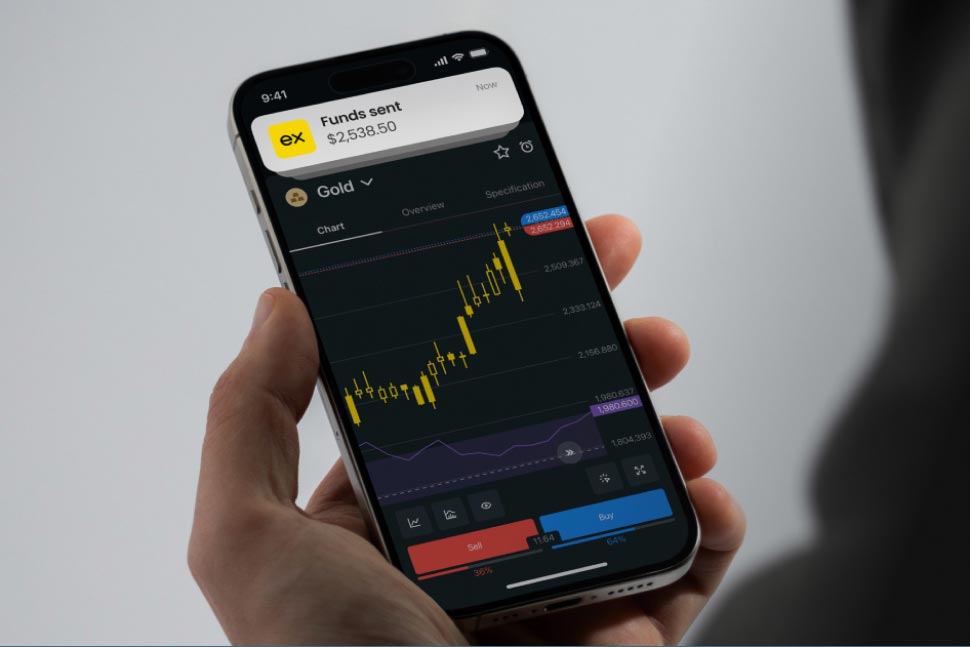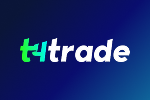
- All Instrument Types
- Indices
- Equities
- ETFs
- Funds
- Commodities
- Currencies
- Crypto
- Bonds
- Certificates
Please try another search

Gold, bitcoin, or cash? Which asset offers the most stability for traders in 2025
Exploring the best moves for traders.

Taking a quick look at the market, you can’t help but see persistent inflation, political shifts, and unpredictable central bank policies. The age-old question for all traders has become more pressing than ever: Where do I find stability?
As we move through 2025, a new playbook is being written because the balance of security across asset classes has flipped. Assets that once promised security are now facing new challenges, forcing traders to rethink strategies for protecting capital. It’s no longer just about picking a winner; it’s about understanding the shift and having the right tools to act decisively.
The new safe havens
For centuries, gold was the undisputed king of safe-haven assets, a reliable hedge against inflation and a store of value during turbulent times. Its tangible nature and historical significance gave it an unmatched reputation for stability.
As we've seen in 2025, significant purchases by central banks have reinforced gold’s appeal, with countries like China diversifying reserves away from the US dollar amid fiscal concerns. For traders capitalizing on these trends in assets like gold (XAUUSD), a platform offering stable pricing becomes critical. For example, Exness offers some of the tightest and most stable spreads in the market1, ensuring predictable trading costs even during surges driven by central bank activity. However, the financial landscape is in constant flux, and the glitter of gold now competes with the glow of a different kind of asset: bitcoin.
Once dismissed as a speculative digital token, bitcoin has steadily carved out a niche as "digital gold," especially among younger, tech-savvy traders. Its decentralized nature and finite supply offer a compelling argument against the endless printing of fiat currencies. While still more volatile than gold, bitcoin has demonstrated remarkable resilience, surging past 111,000 USD in May 2025 following strong institutional demand for spot Bitcoin ETFs and a more favorable US regulatory environment.
When trading highly volatile instruments like BTCUSD, fast and precise execution is paramount. Exness’ proprietary execution technology is built to handle rapid market movements, ensuring that orders are processed quickly and reliably, even during volatility2. This gives traders the confidence to act on opportunities without delays, even in the most dynamic conditions.
Then there’s cash. In an environment where central banks are cautiously navigating between interest rate cuts to stimulate growth and maintaining high rates to combat stubborn inflation, holding cash is a powerful strategic move. While it may not offer the growth potential of gold or bitcoin, cash provides liquidity and the flexibility to seize opportunities as they arise. This makes rapid access to funds essential. Recognizing this, Exness processes over 98% of its withdrawals automatically3, giving traders the agility to redeploy capital when market conditions shift.
What traders should watch
To navigate today’s complexities successfully, traders must keep a close watch on several key factors that will undoubtedly shape market dynamics.
Central bank policies and inflation
The decisions made by major central banks like the US Federal Reserve and the European Central Bank will have far-reaching consequences. Both institutions are attempting to dial back restrictive policies, but persistent inflation remains a challenge. In the US, proposed tariffs and fiscal easing agendas are seen as unequivocally inflationary, with some forecasts predicting inflation will remain well above market expectations through 2025. The interplay between inflation and real interest rates is a critical determinant of asset performance, as high inflation can erode the value of cash, while rising real rates can make interest-bearing assets more attractive than non-yielding ones like gold.
Geopolitical instability
The political landscape is another source of significant uncertainty, topping the list of business risks in 2025. Conflicts in the Middle East, political shifts within the European Union, and tensions in the South China Sea can trigger sudden flights to safety, benefiting traditional havens like gold. These events can also cause extreme volatility in energy markets. For example, in June 2025, an escalation in the Iran-Israel conflict caused Brent crude oil prices to surge over 7% in a single day amid fears of supply disruptions.
In moments of such intense volatility, trading costs can become unpredictable. A reliable broker can mitigate this risk. Exness, for instance, offers some of the tightest average spreads on its Pro accounts for instruments like USOIL, maintaining stability even during major market-moving events. This, combined with a 0% stop out4 level that results in three times fewer stop outs than other brokers, provides traders with a crucial buffer against sudden price shocks.
Mastering market volatility with Exness
Ultimately, whether your strategy favors the time-tested security of gold, the innovative potential of bitcoin, or the tactical flexibility of cash, success in 2025 will depend on your ability to adapt and execute with precision. A trading partner that provides reliable pricing, multi-asset flexibility, and transparent conditions is indispensable.
By offering better-than-market conditions, such as stable spreads, instant withdrawals3, and superior protection against stop outs, Exness provides the infrastructure traders need to act decisively.
Furthermore, its commitment to transparent, swap-free trading on major instruments eliminates overnight financing charges, allowing traders to hold positions for longer periods without incurring additional costs. This is a significant benefit for implementing long-term strategies in these uncertain times. By providing a platform built on a deep understanding of what traders need to navigate global uncertainty, Exness stands as a steadfast partner in the journey to master the markets.
1 Tightest and most stable spread claims refer to the lowest maximum spreads and the tightest average spreads on the Exness Pro account, for XAUUSD, USOIL, and BTCUSD, based on data collected from 25 August to 7 September 2024, when compared to the corresponding spreads across commission-free accounts of other brokers.
2 Delays and slippage may occur. No guarantee of execution speed or precision is provided.
3 At Exness, over 98% of withdrawals are processed automatically. Processing times may vary depending on the chosen payment method.
4 On average, Exness has 3 times fewer stop outs than competitors. Analysis covers orders for April 2025, comparing Exness’s 0% stop-out level to 3 competitors’ levels (15%, 20%, 50%). To normalize extreme ratios, stop-out results have been square-root transformed, values rounded to the nearest whole number, without taking into account the conditions that indirectly affect the stop out.





